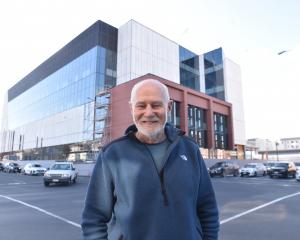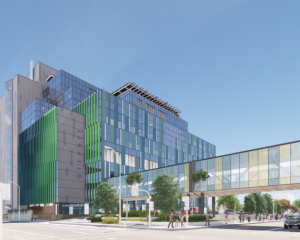
Dunedin Energy Centre supplies the present hospital with power generated by coal-fired steam boilers.
As part of the new hospital development it has been hoped that a new energy scheme, using renewable sources to power both the hospital and the University of Otago, could be established.
Funding for the study brought that one step closer, Mr Hodgson said.
''The study will get under way when a suitable consultant has been found.''
The $1.4billion hospital will be built on the former Cadbury factory site and the block to the north of it between Hanover and St Andrew Sts.
The rebuild zone also includes Southern District Health Board-owned land home to the Dunedin Energy Centre.
Mr Hodgson has previously said he hoped the energy centre would remain in use, and suggested it might switch to either hot water or steam generation.
The Local Advisory Group assisting the rebuild project met yesterday, and also discussed workforce accommodation and transport issues, Mr Hodgson said.
''The various options for improving both public transport and changes to street layouts are being weighed, and will need to be progressed alongside the master site plan which is due for completion in about eight or nine months.''
Discussion about housing had been led by the Dunedin City Council, Mr Hodgson said.
While new housing would be needed for the hundreds of construction workers expected to come to Dunedin for the rebuild, the DCC was also considering housing demand beyond the expected 2026 completion date of the new hospital.
''It is important to minimise the risk of damage to our tourism industry, and the risk of rent rises for all tenants, including students who may choose to study elsewhere,'' Mr Hodgson said.
''On the other hand potential developers need to have some certainty that they will be able to rent or sell new homes.
''The best way to ensure that we build the optimum quantity of new homes is to freely share information on the likely demand.''
The rebuild group had already spoken to Housing NZ, Ngai Tahu, the university and the polytech about workforce housing, and had several other private sector developers it still wanted to meet.
''Our interest is to ensure that the city does not become congested by lots of workers with nowhere to live,'' Mr Hodgson said.












